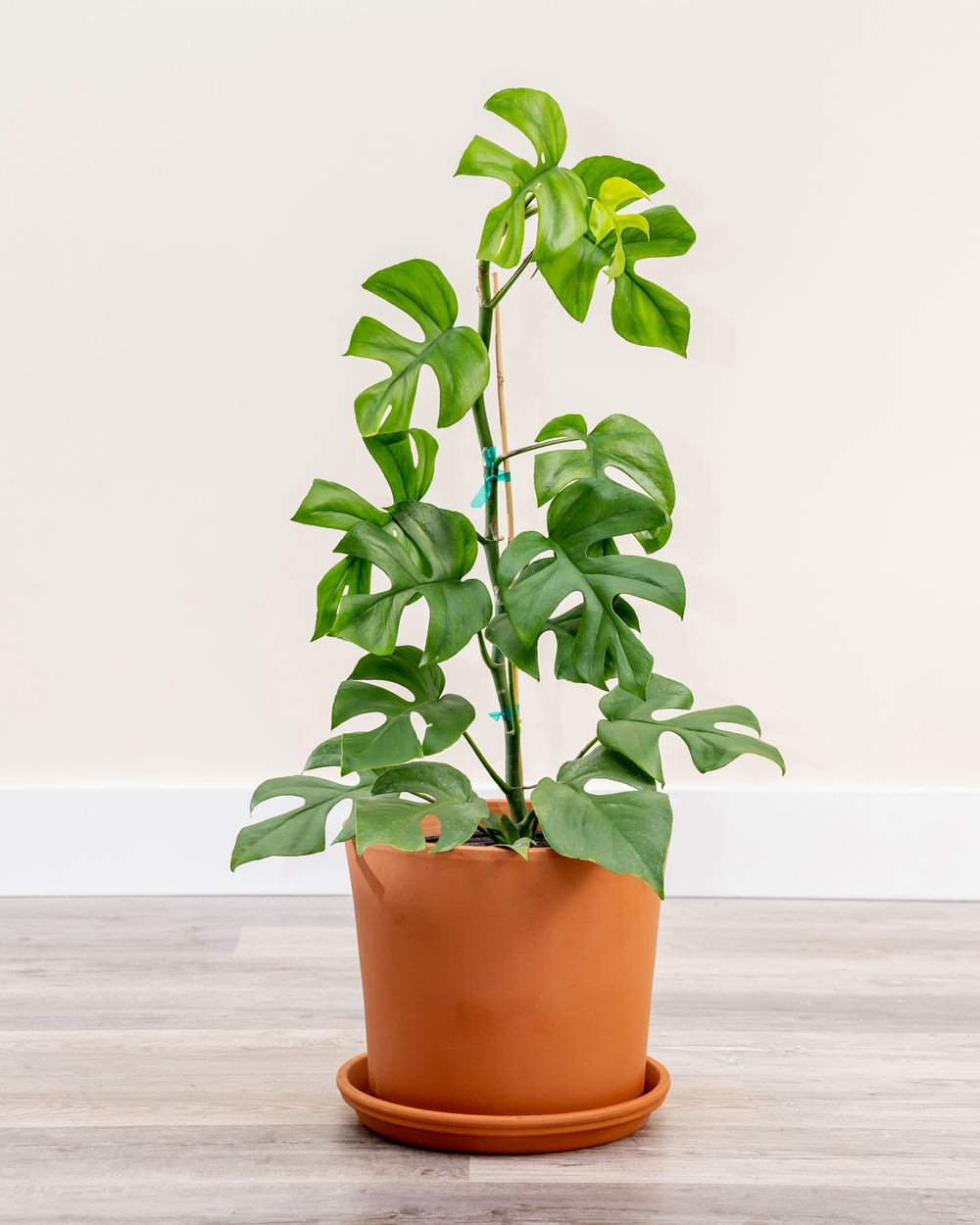

If your Monstera’s leaves are soft or wilting, this is a sign of the plant receiving a lack of nutrients from the soil. You may also see a yellow hue surrounding the black spots. This is due to the pathogens and bacteria taking over the plant. Black spots on the affected leaves are a sure sign of root rot. Here are some of the tell-tale Monstera root rot signs: You can save your Monstera plant and fix root rot by applying some simple treatments that will give your plant healthy roots again.

If your Monstera is like this without treating, it can kill your entire plant. When there is too much water and excess moisture in the soil, it can suffocate the roots, which causes them to rot. Some plants need a water schedule, to make sure that you don’t overwater. Overwatering is when the soil is not able to dry out enough in between each time you water your plant. This happens mainly when you have been overwatering your plant, or if the drainage hole in the pot gets blocked. The soggy soil will create an environment that permits disease and bacteria to thrive, which will create rotten, mushy roots. When there is too much water in the soil of your Monstera plants, the root system becomes oversaturated and waterlogged. Luckily, there are solutions and ways to treat Monstera root rot, as well as ways to prevent it from happening again once you notice the signs of root rot. This is essentially a fungal infection, as root rot creates the perfect environment for fungus and bacteria to grow, which causes rotting roots that smell bad and affects the entire plant.ĭon’t worry though. Root rot is when your plant’s roots start to get mushy and brown due to sitting in stagnant water for too long. How can you tell if it’s root rot, you may wonder? These leaf holes are completely natural, but what happens when the leaves of your plant start having brown spots and looking weak and sick? Unfortunately, root rot may be the culprit. Many people think that the holes in their leaves are a defect, but this is just the classic signature detail of this houseplant which gives it its nickname ‘Swiss Cheese Plant.’ Monstera deliciosa are gorgeous, tropical indoor plants that bring joy to any plant lover.


 0 kommentar(er)
0 kommentar(er)
